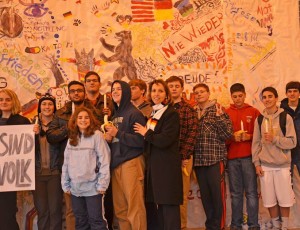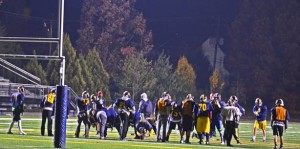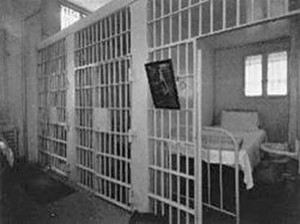 When a friend wants something you don’t understand, you respect your friend’s choice.
When a friend wants something you don’t understand, you respect your friend’s choice.
It may not be true of everything but, when it comes to personal relations, we really should err on the side of support and approval for a friend.
If we can’t support and approve, we should at least be tolerant of another’s choices even when our personal religious belief contradicts our friend’s choice.
Same sex marriage has been in dispute a long time, and is often rightly compared with the offensive intolerance once legally visited upon mixed racial couples.
The federal and state courts have almost uniformly found any state prohibition of same sex marriage to reflect a private moral view that advances no legitimate government interest, and that violates an individual’s constitutional right to marry regardless of gender.
I expected that the Supreme Court would leave this constitutional issue to the states and the lower federal courts unless there was a split in the lower federal court decisions. Justice Ruth Baden Ginsburg seemed to be saying the same thing at a public forum when she commented that the three federal appeal courts considering the question were in agreement.
The Supreme Court foreshadowed its disapproval of any gay marriage ban when it threw out a federal law that refused benefits to same sex couples.
On October 6, 2014, the Supreme Court therefore found somewhat unsurprisingly no reason to give a hearing to lower court decisions in agreement — that the U.S. Constitution guaranteed the right to same sex partners to marry.
The U.S. Supreme Court, by refusing to hear cert petitions from several “agreeable” federal circuits, thus affirmed the lower court decisions, legalizing same sex marriages in Virginia (Rainer v. Bostic, McQuiqq v. Bostic, Schaefer v. Bostic), Wisconsin (Walker v. Way), Indiana (Bogan v. Baskin), Utah (Herbert v. Kitchen) and Oklahoma (Smith v. Bishop).
The Supreme Court’s tacit approval of these appellate court holdings likely means states in those same federal circuits will approve same sex marriage – and that includes Colorado, Wyoming, Kansas, West Virginia, North Carolina and South Carolina.
On Friday, October 10, 2014, sure enough, a North Carolina federal judge, Max O. Cogburn, Jr., from Asheville, did just that; he struck down the state’s ban on gay marriage as unconstitutional, even though the ban had been approved by the voters in 2012. Judge Cogburn said: “This issue before this court is neither a political issue nor a moral issue. It’s a legal issue.” Sheriff Deputies, Chad Biggs, 35, and Chris Creech, 46, were among the first wed after Judge Cogburn’s ruling.
On Friday, October 10, 2014, the Supreme Court denied a stay to a federal appeals court decision that granted freedom to same sex couples to marry in Idaho. Idaho officials in favor of the ban argued to the high court, a little too much in the court’s face, if you ask this litigator, that, if they meant to signal approval by the Supreme Court of gay marriage, they should deny the stay. The Supreme Court denied the stay.
In Leesburg, Virginia, where we make our law offices, Carla Rhoads and Cindy Losasso, a couple for 16 years, got their marriage license and reportedly were the first gay marriage in Loudoun County.
America has found the heart to approve same sex couples and – here in Virginia – we can now truly say – “Virginia is for lovers!” – for all lovers.










